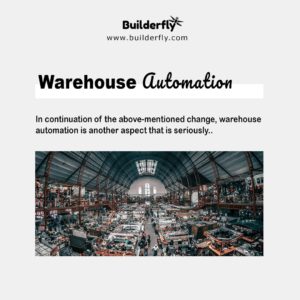A few decades ago, the ecommerce business was only a baby in the cradle. Only a few companies used to sell products online then. It took quite a few years for the consumers to give a warm welcome to the concept of online shopping. Due to this reason, early ecommerce operations did not need expansive logistics operations like the one we have today.
The phenomenon of expansion of ecommerce along with the digital market is termed as the Amazon Effect. This effect has completely changed the rhythm of consumer purchasing behavior, and their expectations. Consumers today expect speedy delivery, competitive product prices, and free shipping option. Such demanding delivery requirements challenge the traditional logistics as well as supply chain models. Companies are now forced to cope with on-demand low-cost delivery services expected by the consumers.
Ecommerce breaks all geographical barriers serving a vast majority of consumers across the globe. This opens door to overall better sales. However, ecommerce imposes a few challenges to logistics in return. Ecommerce businesses seek over three times more logistics space than that is required by the traditional brick and mortar stores. Enough of evoking enthusiasm, right? As you might have got by now; we are going to discuss how ecommerce is changing logistics. Keep reading and let us serve your curious brains!
Changes in Logistics with the Inception of Ecommerce
The growth of ecommerce has had a symbolic impact on many aspects of the logistics industry. Here are a few ways by which ecommerce significantly played a role in the transformation or better, enhancement of the logistics industry:
Consumer Habits
The logistics industry has experienced a drastic change in consumer habits and is continuing to evolve with the increasing trend of online shopping. The shift from traditional brick and mortar shopping to online shopping is bringing a huge transformation in the logistics sector. In the past few years, there have been visible changes in the technological aspects of not only the logistics department but also in the whole global economy. Consumer behavior is greatly impacted by the introduction, development, and increased usage of community Wi-Fi as well as smartphones. This eventually leads to changes in the logistics sector imposing newer challenges and forcing the sector to develop ways to build a compelling relationship with their consumers.
Transportation
Before reaching the end-consumers from the manufacturers, the product passes through many centralized distribution and fulfillment centers. This is how the cycle goes:
- The manufacturer produces the products in bulk
- The manufacturer ships the products to various distribution centers.
- The distribution centers split the products into smaller quantities for their fulfillment centers.
- And usually, private logistics companies handle the transportation of the orders to the consumers.
Since the efficiency decreases with such methods, ecommerce helps in reducing over half of the logistics cost which is otherwise incurred in the traditional transportation method. Ecommerce businesses may find it complicated to cross through all these logistics steps to deliver products to their consumers; especially when the consumer demands super-fast deliveries including one-day delivery. Therefore, in order to stay competitive as well as meet the consumer requirements, the logistics sector has come up with many innovative shipping ideas that serve the best to both the consumers as well as the business. This can be clearly witnessed with the highly efficient delivery services provided by some of the ecommerce giants including Amzon.com.
Technology and Infrastructure

The recent enhancements in the field of technology and infrastructure are influencing the online retail industry, without a doubt. This eventually leads to the consumers completely changing their shopping behaviors and habits. Today, especially post COVID-19, consumers prefer, as well as are more comfortable shopping from the comfort of their homes, without needing to step out of their house. This not only saves their time but also helps them cut down the costs of the consumers incurred from traveling to the physical retail stores. Moreover, the logistics industry has witnessed a huge shift from retail real estate to warehousing to serve the needs of ecommerce retailers. It has led to a huge cut down in the expenses incurred for renting spaces in the traditional method and saving the same with warehousing. Clearly, more and more warehouses are coming up, do you think the same? Well, since the ecommerce market is never ceasing to grow, it is expected that there will be an increasing requirement for warehouses and that is considerably impacting the retail real estate market.
Warehouse Automation

In continuation of the above-mentioned change, warehouse automation is another aspect that is seriously looked upon by ecommerce retailers. They are focusing on optimizing the warehouses because of their goal to succeed in the highly competitive market. With the right use of robots and automated processing with cameras, barcode sensors, radio-frequency ID equipment, laser sensors, etc. businesses are focusing on automating their warehouses. In fact, a few warehouses have even relied mostly on automated services. For instance, one of the ecommerce giants, Ali Baba’s warehouse involves over 70% of automation. Consumers being a part of the highly technological world, highly expect efficient and speedy delivery, product ranges, and much more. And, their demands have been successfully met by the logistics industry with larges warehousing spaces, trimmed supply chain, and so on.
Customs

When purchasing online, as we mentioned earlier, there are no geographical borders, nor in terms of cities, and neither country. You can purchase products from both foreign states and foreign countries, without having to move out of your comfort zone. However, in order to protect the local businesses from the competition of foreign businesses and vice versa, almost every good that crosses international borders are subject to estimation for taxes and duties that are imposed by the country’s government. In customs, there are two major terms, the Delivery Duty Paid (DDP), and Delivered At Place (DAP). The former implies that the ecommerce retailer has abided by all the taxes and duties and has paid all the amount to the government and the latter signifies that the amount is not dealt with by the retailer and must be paid by the consumer, mostly at the time of delivery. This amount paid to the government is calculated based on the location of the consumer wherein the product is to be delivered. Nowadays there are options for the consumers to pay the sum right when they are placing the order, reducing the hassles of carrying money at the time of delivery.
Returns
The traditional logistics method is not only cumbersome but also imposes a few operational challenges due to the outright value of orders and the processing charges. Now the number of goods returning through this supply chain is much more than it is known by the general public, which can even go up to 50% of the total products shipped. When it comes to ecommerce businesses, it depends on the way how retailers deal with returns that how the consumer should build a relationship with the business. The consumers who find it hard to return the products they purchased and are not satisfied with are most likely to never purchase from that retailer any longer. Businesses have today integrated with many returns policy including restocking and replacing products for smooth consumer experience as well as logistics processing.
Conclusion
Ecommerce has significantly contributed to the transformation of the logistics industry. The operators are working towards delivering products to the consumers as soon as possible at the lowest possible rates. With the streamlining of various processes of the supply chain with the best use of technological advancements, the logistics industry has been significantly and positively impacted by the ecommerce industry. Isn’t this a good transformation? What do you think?








